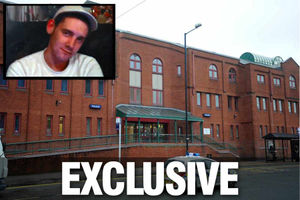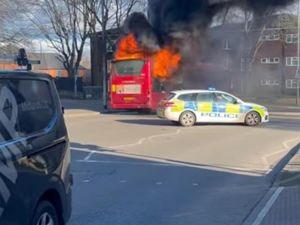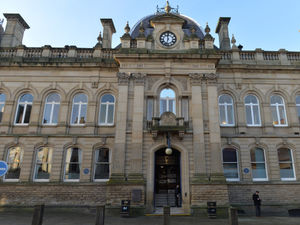Wolverhampton bus tragedy: Police failed victim as he died outside city's main police station
A string of failings surrounding the death of Tony Jones, who died on a bus outside Wolverhampton police station without any officers coming to his aid, was today revealed.

The Independent Police Complaints Commission has investigated the events of October 17, which saw the 28-year-old from Netherton die on the No 1 Dudley-to-Tettenhall bus outside the main city centre station.
The IPCC found that:
* The incident was never logged at the front desk despite the bus driver twice going inside to report it.
* Some staff refused to get involved because they did not feel it was their job.
* Mr Jones's death should have been classed as an emergency.
* There was a defibrillator at the station that went un-used as Mr Jones suffered what paramedics classed as a cardiac arrest.
A member of staff on the front desk and a special constable have taken some of the blame for Mr Jones, of Gill Street, being ignored and left dying on the bus for almost an hour. The former is now facing disciplinary action and the latter no longer volunteers with the force.
Driver Ravinder Kumar stopped the bus at Fighting Cocks to check on Mr Jones after he slumped forward in his chair on the double decker and decided to divert the service to Wolverhampton's main Bilston Street police station for help. However, despite him twice going inside to plead for assistance, his cries went unanswered.
The IPCC said front desk worker Permjit Chima did not log the incident, despite being told the passenger was not breathing.
The report says: "The evidence suggests she received information about the perceived seriousness of his condition and was made aware that he was not breathing.
"The incident should have been classed as an emergency and an immediate response provided. This is further demonstrated by the response of the paramedics who treated the incident as a cardiac arrest."
Special Constable Stefan Jones also failed in his duties, according to the IPCC.
During Mr Jones's inquest earlier this year, it emerged that, after being informed of the situation outside by Mr Kumar, the special constable went into a room where 14 officers from the business neighbourhood team were being briefed about a new terrorist threat to see if anybody could deal with the incident.
Pc Darren Neville, who was among the officers, said during the inquest hearing: "I told him we were in a briefing and the response team would have to deal with it but all 14 of us would have been out from that office if we had known it was an emergency."
Then, when the special constable went back into the foyer and saw the driver had left, he assumed somebody else had dealt with the matter.
The IPCC concluded that, as a result, most people in the station were unaware of the unfolding drama on their doorstep while others refused to get involved because they did not feel it was their job.
With his appeals for help going unanswered, Mr Kumar finally had to call an ambulance himself by dialling 999 from outside the station.
Two ambulances and a senior official started to arrive within six minutes of the call but they could not save Mr Jones. He was certified dead 56 minutes after the bus arrived at the police station.
The deceased had two and a half times the drink-drive alcohol limit and traces of heroin and sleeping pills in his blood. Black Country Coroner Mr Zafar Siddique concluded it was a drugs and alcohol related death and the outcome was unlikely to have been different if police had intervened sooner.
The IPCC echoed this but the 25-page report urges West Midlands Police to take action to ensure a repeat of the incident never happens again. The IPCC felt the actions of the force on that day undermined the confidence of the public in the region's police.
Although the watchdog agrees it is unlikely that any earlier intervention would have saved Tony Jones's life, it states that more should have been done.
It wants staff to understand the importance of creating and updating incident logs and that job roles and responsibilities cannot be so rigid they hinder members of staff helping those that need it in an emergency.
"Their failure to create a log resulted in missed opportunities for the police to respond. In the case of the second visit there was additional information which suggested that it was an emergency which required immediate response."
The IPCC has now urged West Midland Police to reiterate the importance of creating and updating a log to all its officers and staff who deal directly with the public.
Referring to the refusal of members of the Neighbourhood Business unit to get involved because it was not their job to do so, the IPCC adds: "A policy is needed to manage resource deployment but should not be so rigidly followed or enforced as to be used as a reason not to deal with an incident which is occurring right outside a police station."
West Midlands Police has apologised and said it would be taking the recommendations on board.
Chief Inspector Darren Walsh from the force's Professional Standards Department said: "We accept the IPCC's recommendations. The report concludes it was unlikely any early intervention from police could have saved Mr Jones as officers would not have had the medical experience required.
"That said, we apologise for the lack of police response at the time and it is clear officers and staff at the station could have done more to help.
"The member of staff on the front desk who is criticised in the report for not logging the incident or calling for an ambulance on the bus driver's behalf will face misconduct proceedings.




